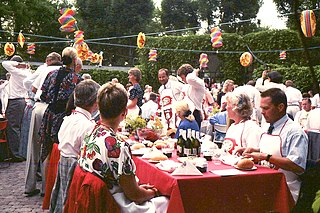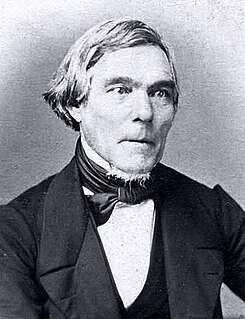 W
WA crayfish party is a traditional summertime eating and drinking celebration in the Nordic countries. The tradition originated in Sweden, where a crayfish party is called a kräftskiva. The tradition has also spread to Finland via its Swedish-speaking population, and Norway. A similar tradition exists in the Baltic countries in particular in Lithuania and Latvia.
 W
WEric IX, also called Eric the Holy, Saint Eric, and Eric the Lawgiver, was a Swedish king in the 12th century, c. 1156–1160. The Roman Martyrology of the Catholic Church names him as a saint memorialized on 18 May. He was the founder of the House of Eric, which ruled Sweden with interruptions from c. 1156 to 1250.
 W
WFolklore of Finland refers to traditional and folk practices, technologies, beliefs, knowledge, attitudes and habits in Finland. Finnish folk tradition includes in a broad sense all Finnish traditional folk culture. Folklore is not new, commercial or foreign contemporary culture, or the so-called "high culture". In particular, rural traditions have been considered in Finland as folklore.
 W
WHarpens kraft (Danish) or Harpans kraft, meaning "The Power of the Harp", is the title of a supernatural ballad type, attested in Danish, Swedish, Norwegian, and Icelandic variants.
 W
WJoulupukki is a Finnish Christmas figure. The name joulupukki literally means "Christmas goat" or "Yule Goat" in Finnish; the word pukki comes from the Teutonic root bock, which is a cognate of the English "buck", and means "billy-goat". An old Scandinavian custom, the figure is now being eventually conflated with Santa Claus.
 W
WElias Lönnrot was a Finnish physician, philologist and collector of traditional Finnish oral poetry. He is best known for creating the Finnish national epic, Kalevala, (1835, enlarged 1849), from short ballads and lyric poems gathered from the Finnish oral tradition during several expeditions in Finland, Russian Karelia, the Kola Peninsula and Baltic countries.
 W
WJuho Vihtori Nätti, known as "Nätti-Jussi" was a Finnish forest laborer. The stories told by Nätti made him a legendary figure, particularly in Lapland. Nätti was born to a six-member family in Karstula, Central Finland, in August 1890. His parents were log driver Juho Nätti and hostess Maija Nätti. He had three sisters. Nätti migrated with other members of his family to the Northern logging sites, and worked there for most of his life. He was a well-known lumberjack who was known in Tervola, Pisa, Muurola and Rovaniemi.
 W
WThe virvonta or virpominen is performed by Finnish children on Palm Sunday to wish well to the households.